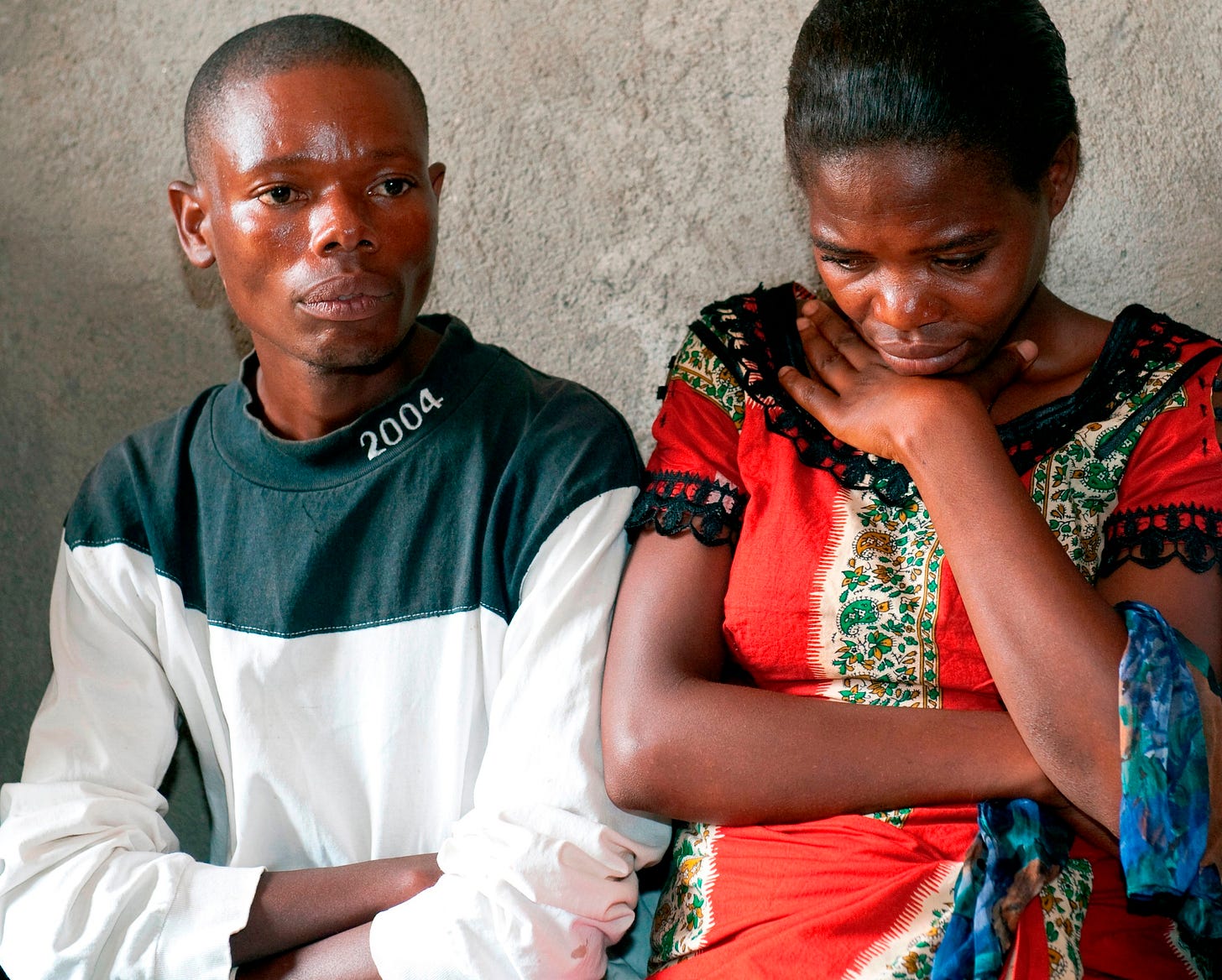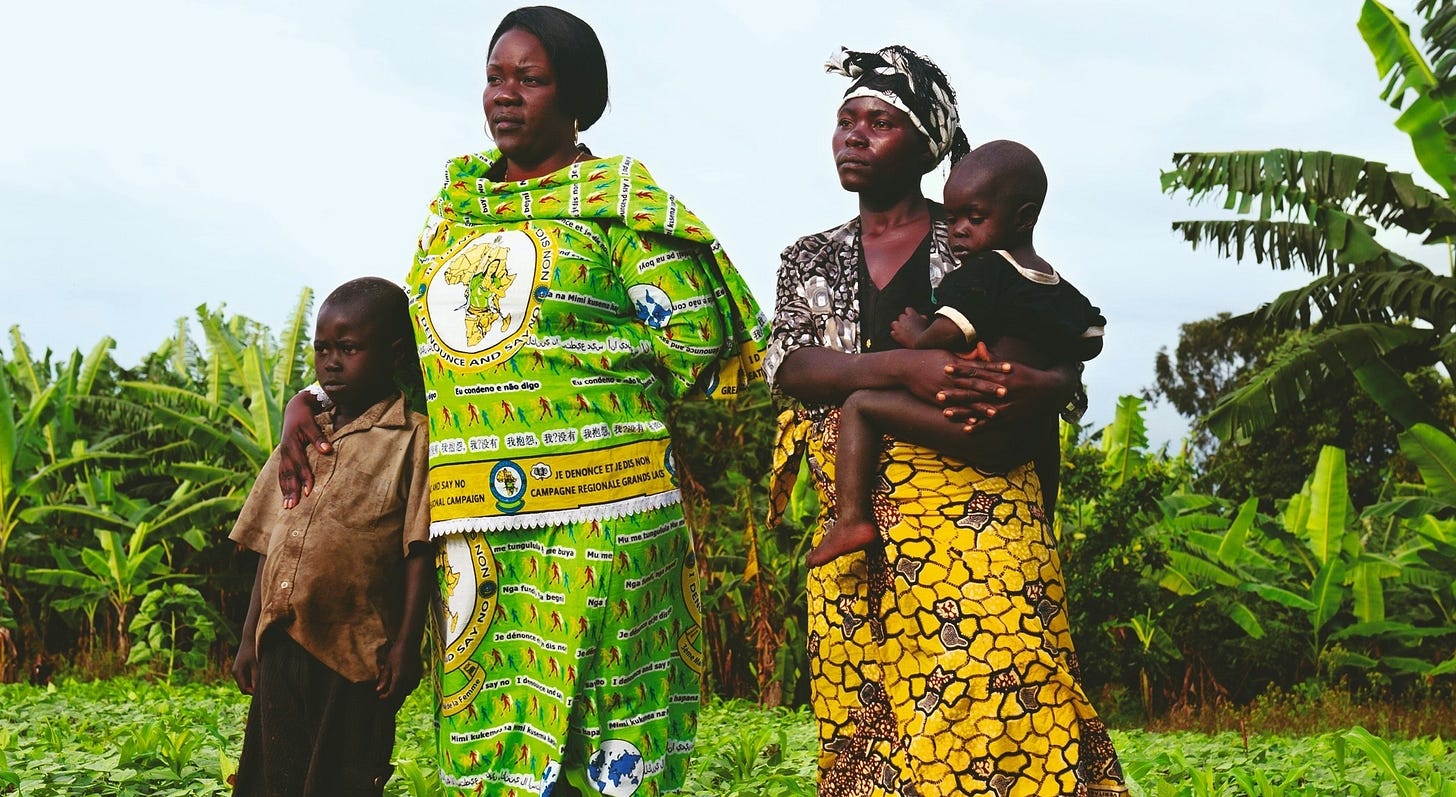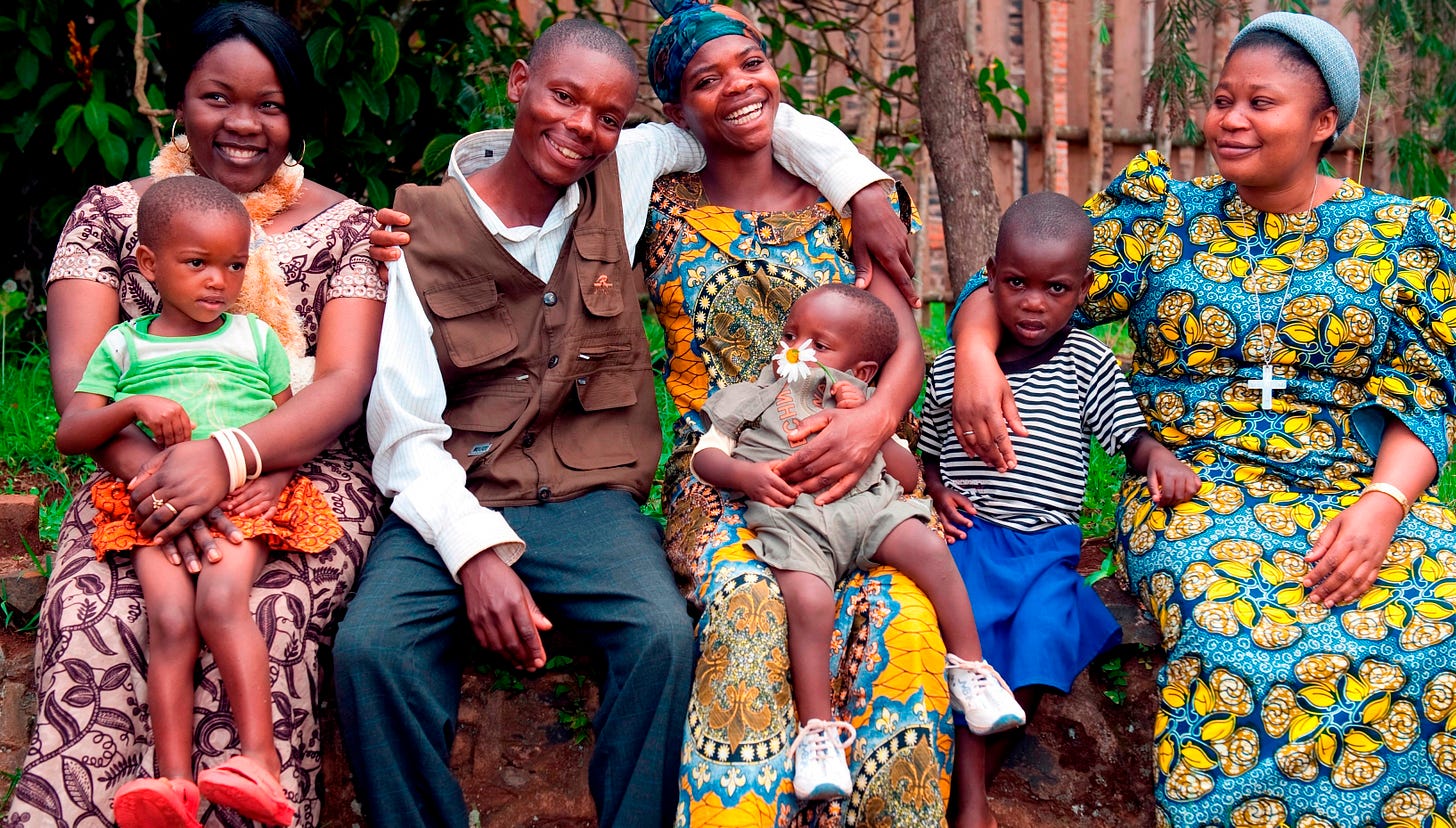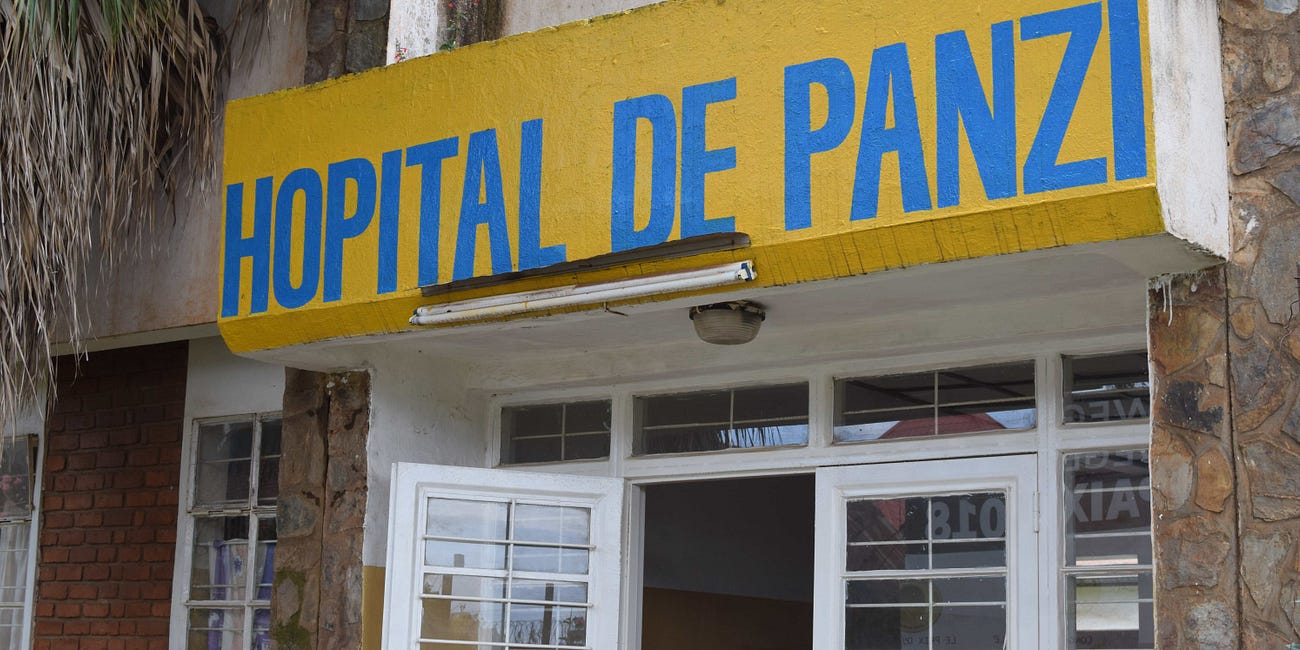While the world looks to Ukraine and the Middle East, to Donald Trump, Elon Musk and, most recently, to Germany, the east of the Democratic Republic of the Congo is once again sinking into a nightmare. The M23 “rebels” are marauding. They murder, loot and rape - and have been doing so for almost three decades.
The reason for the on-going tyranny in estern Congo and the fights between various militia factions is the hunt for raw materials in the region. One of these is the ore coltan, which is used worldwide in laptops and smartphones. Exploitation, war and corruption have made this resource-rich country one of the poorest countries in the world today. According to media reports, the M23 militia is backed and armed by the president of the neighboring state of Rwanda, Paul Kagame, one of the West’s closest allies on the continent. Kambale Musavuli, a Congolese author and human rights activist, tells the US news channel Democracy Now that Western countries' continued demand for Congo's minerals is to blame “for their complicity” in the deadly violence.
Ten years ago, I had the opportunity to travel to eastern Congo, visit a number of local aid projects and talk to people, mostly women who had become victims of the militias. They told me about unimaginable atrocities. Unfortunately, they are still happening today. The Guardian recently reports: “It was early afternoon when the M23 militia raided the Congolese town of Rubaya. In a marketplace, gunmen found a giant wooden pestle and mortar for crushing grain. They began rounding up children, wedging them tight in the mortar. Isabel, 32, watched the rebels stove in their skulls. The mortar turned red, overflowing with blood.”
Rape is the order of the day. Many of the women who are raped become pregnant and give birth to children. But neither the families nor society accept these children. Many of them are neglected and are in danger of joining the militias - the rapists. The Commission for Justice and Peace of the Catholic Church in the provincial capital Bukavu is trying to break this cycle of violence through education and family therapy.
That is why my story - despite some gruesome details - also offers glimmers of hope and touching moments, when simple people, in remote villages in the middle of the Congolese forest, stand together in love and break new ground - beyond all social taboos.
The trauma center in the village of Muresa in eastern Congo is a plain square building with white stone walls. Solange walked here for an hour, with her two-and-a-half-year-old daughter on her back. Now they are both sitting in the “Chambre d'ecoute”, the “listening room”. Solange talks about how her relationship with her husband has developed since their last consultation. Shortly after her wedding, Solange, just 17 years old, was abducted and raped by armed militias. She became pregnant and had a child. It is still difficult for her husband to accept the little girl, she says.
“After our last consultation, he was a bit friendlier”, she says. “I did the housework, cooked and did his laundry, and he went out into the fields. Sometimes he came home and greeted me happily. That was wonderful! But then my daughter fell ill and the treatment ate up almost all our money. My husband said: ‘Maybe she's sick because she has rebel blood in her.’ When he said that, it was a shock and I became very sad.”
Social worker Thérèse Mema, a pretty woman in her mid-30s, listens carefully to Solange. Then she says that there is a limited budget for emergencies, from which she could give Solange some money if her daughter falls ill again. The young woman breathes a sigh of relief. She says her husband only behaves like this because they are poor. “I spend all the money and do this all for a child that's not mine”, he says.
Thérèse Mema promises Solange that she will visit her at home again as soon as possible and talk to her husband. “When we first met, he made an educated impression”, she tells me after Solange has left the room. “He was polite. I could hardly believe what his wife was saying about him.” So Thérèse Mema asked him directly. “The situation is not easy for me”, he admitted. “I love my wife. And I can't really be angry with the baby because it's still so small.” But the problem starts when he hears what his parents, relatives and neighbors gossip about his wife. “Then I remember. And I get angry, even though I don't want to. That's why I behave like this.”
A raped woman in the Congo means disgrace for the family and the community. A child born of rape is a daily reminder of this disgrace. The Commission for Justice and Peace of the Catholic Church in Bukavu has therefore set up trauma centers, with the support of the Catholic aid organization missio from Germany. A team of Congolese social workers, one woman and one man, look after rape victims and their families. Thérèse Mema regularly joins them from Bukavu. If a woman is severely mutilated, she is taken to Panzi Hospital in Bukavu. There, Dr. Denis Mukwege and his team treat and operate around the clock. Because of his commitment to the tortured women, the gynecologist was honored with the Right Livelihood Award in 2013, also known as the Alternative Nobel Prize.
After giving birth, most women realize that the children are not to blame for what happened and love their children. But the husbands and relatives say, the child has to go. Most abandoned children live alone or in gangs on the street, many become criminals. Thérèse Mema, herself a mother of three, tries to sensitize families to the need to keep their children with them. “To break the spiral of violence, we have to give these children a good education,” says Mema. “After all, they are the next generation in the Congo.”
According to United Nations statistics, an average of 48 women are raped every hour in the Congo. The attacks began after the genocide against the Tutsi in Rwanda in 1994: After the victory of the Tutsi-dominated rebel army, many of those involved in the genocide fled across the border to the neighboring eastern Congo. There are now countless rebel groups hiding in the inaccessible forests during the day. At night or at dawn, they attack, rape and kill people in the villages. And they abduct people so that they can work as their slaves in mines to extract the mineral resources. The militia use the profits from the illegal trade to purchase their weapons.
The next day, I accompany Thérèse when she drives to another village, Mwanda. The jeep takes almost four hours to cover the 50 miles. Side roads are not asphalted, they are stony and have deep holes. At the trauma center in Mwanda, the social worker wants to talk to Vumilia, who was also brutally raped by rebels and then gave birth to a child - a son. This makes a big difference, explains Thérèse Mema:
“When a child is born after a rape, whose father killed, burned and stole everything a family owned - asking that family to raise that child is generally not easy. But it is easier if the child is a girl”. Because if the girl gets married later, the family gets a bridal gift for her - and she moves in with her husband. But a boy: According to the tradition, he will one day inherit his parents' property and bear the name of the male head of the family. The men then say: “How can that be, even though he's not my son? Never!” The men also fear that the sons will one day go in search of their biological fathers - and then possibly join the militia.
Vumilia's son is only nine years old and his skin is black like that of many Hutu in Rwanda, much darker than that of most Congolese. Neighbors teased him, saying he was a rebel child. Vumilia therefore told him that his biological father was dead. Her husband doesn't accept the boy, she says. “That's why our relationship is bad. For example, when I ask him for money for clothes, he says: 'You slept with another man and went with the rebels. Let them buy you clothes! The neighbors also think you're not good for me.’ Then we argue. And he disappears and goes to other women.”
Vumilia is very disappointed by her husband's behavior. On the other hand, she is happy when she doesn't have to have sex - after all the terrible things she experienced with the rebels.
“I was alone in the house. My husband had left to find work. He had just been away for a week when the rebels came. They took all six of our goats and took me into the forest, together with another woman and three girls. They ordered us to undress. Naked we then had to bend forward and they started to rape us from behind. When the first one had finished, the second one came. He wrapped a cloth around his hand and forced his hand into my vagina. Then came the third. He ordered me to lie on my back and lift my legs up. And so it went on.”
Vumilia describes the horror without any visible emotion. Since that time in the forest, she has often talked about it - both to the social workers at the trauma center and to other raped women, in group therapy. She has told her story so often that she can now talk about her terrible experiences calmly and outwardly composed.
Thérèse Mema has heard hundreds of stories from traumatized women - and is convinced that the militias are not acting out of sexual desire, but are using rape as a weapon of war. “All these rebels from Rwanda fled into the forests with their weapons and then they started raping women. Maybe they are planning to wipe out a whole generation of Congolese. The militias are very strategic and well organized. All the women tell similar stories. The Rwandan rebels rape systematically - women, girls and also men. Real mass rapes. And I think they do this to humiliate people. They want people to be afraid, they want to dominate them - and that's why they rape them.”
“70-year women, 11-month-old children have been raped by the rebels. These people are like animals I can say.” (Thérèse Mema)
"A woman, 32 years old, was raped by the rebels. While she was still crying, they ordered her to spread her legs. Then they heated a piece of plastic until it melted and let the hot mass drip into her genitals. Her entire genitals and thighs were burned." (Thérese Mema)
After two months as a rebel sex slave, Vumilia managed to escape. She wandered through the forest for two weeks until she came across a group of women working in the fields. They showed Vumilia the way back to her village and told her about the trauma center, too. The social workers there also invited Vumilia's husband for a talk - but to no avail. Such negative reactions, Therese Mema confirms, are unfortunately the rule - and the insightfulness of Solange's husband the great exception.
A week later, Thèrèse Mema and I set off to visit Solange and her husband. An hour by jeep, then another hour's walk to the other side of the hill. There, the young couple live with their baby Joseline in a spacious round hut made of palm branches. The floor is made of tamped earth, and a small amount of daylight penetrates through small openings in the walls. Solange and her husband are happy to see the social worker.
Solange's husband’s name is Pascal, he is 28 years old, relatively small, narrow and speaks softly. Three years ago, he had to watch helplessly as the rebels abducted his wife. “They came in the middle of the night. We were already asleep. Suddenly we heard loud voices outside. They broke down the door, came in and shouted: 'Give us your dollars! Give us your dollars!” I said we didn't have any money. Then they beat me and beat me and beat me, and finally tied my arms and legs to the bed. Then they said: ‘We like your wife, we'll take her to the forest.’”
And they said to Solange: “You're beautiful, we won't rape you here, we'll take you to our leader.” Then they started arguing about her. Some said: “I want to rape her now!” The others said: “No, our leader said that the most beautiful women belong to him!”
Solange spent a month with the rebels in the forest, then she too was able to flee. Hungry and exhausted, she finally arrived home in her hut. But instead of rejoicing, her husband gave her a bad reception: “What, you're back? Thank God - but I don't want to be with you anymore. Go to your relatives, I don't want you anymore!” That really hurt me, remembers Solange. “He was the love of my life. How could he do this to me?” Then she heard other people in the village say: “She's from the forest!” And she thought: “I wish I was dead, that would be better for me.”
Husband Pascal remembers: “When my wife came back from the forest, she looked like a lunatic. Her face was smeared with dirt, she was dirty and stank. I thought: Is this the beautiful woman I married?” And he got scared: maybe she has an STD or even AIDS. “Maybe she's become like the rebels in the forest and will kill me one day!”
Neighbors took Solange in. And Thérèse Mema made sure that the young woman was treated at Panzi Hospital in Bukavu and also tested for HIV. Solange returned to her village with a negative test result. Thérèse and her social work colleagues tried to persuade her husband to take Solange back in. “When we met him, he was very, very angry. He was totally jealous because his wife had had sex with several men in the forest. In our culture, it is taboo for a woman to have sex outside of marriage.”
The social workers explained to Pascal that his wife was not the only one who had been raped. “Be happy that your wife came back alive. So many others have been raped and then killed.” Pascal admits that he was really disgusted at first and didn't want Solange anymore. But then, when she came back from Panzi Hospital, “she'd washed herself and was beautiful again. And then we talked for a long time. She told me what had happened in the forest - everything. I felt sorry for her. Through this feeling, I found my love for her again.”
The situation was completely different for Vumilia when she returned from the forest. “When my husband found out that I had been raped, he packed all his things, sold our land and left.” After a few months, he came back and asked for the result of her HIV test. “When he heard that it was negative, he slept with me. We only had sex once - then he left again.”
At the time, Vumilia did not know that she was already pregnant by one of her rapists. She found out on her next visit to Panzi Hospital. Like many women who have been raped, she says, she immediately thought about having an abortion. However, the doctors and social workers refused: her Catholic faith and Congolese law forbade it, they said. After Thérèse Mema assured her of financial support, Vumilia gave in and gave birth to the child. How difficult the following years were, Vumilia says she is glad today that she did not have an abortion.
She lives with her son in a hut made of banana branches, together with the seven older children she has from her husband. He only drops by when he finds out that Vumilia has received a donation from the social welfare center or a daily wage. Then he brings sweets for his own children, but not for her son. And he says: “Your son will never inherit anything from me. After all, I'm not his father.” When he says that, Vumilia takes her son outside and plays with him so that he quickly forgets the bad words. “My husband wants me to give the boy away, but I don't do that. I suffered at the birth of all my children, for me he is my child just like the others.”
After a short period of reflection, it was also clear to Solange that she would have her child and not have an abortion. She hopes to have children with her husband one day. Then, she hopes, it will be easier for him to grow fond of her daughter Joseline. When she found out that she was pregnant with her, she initially concealed the pregnancy from her husband - for fear that he might kill her out of anger. When she could no longer hide her condition, she asked Thérèse Mema to help her break the bad news to her husband.
He was shocked. “How can the first child in my marriage be a child that is not mine? Am I supposed to live with a child of a Hutu? Should I sleep with a woman who has been raped?” The counseling sessions made him realize step by step that he also has to take care of this child. After the baby was born, Thérèse said to him: “Look closely, how can you tell that this child comes from the forest? It is the spitting image of your wife. You have to forgive her and start a new life.” After many days and long discussions, the two of them have grown closer again. “When we visit them now, they sometimes till the fields together or work together in other ways. We are happy for.”
Solange nods and smiles: “He never used to play with her - but he has since we started going to counseling. Sometimes, when I'm doing the housework, he looks after her. I'm really happy then. I feel like I'm in paradise when he takes my child in his arms.”
Vumilia, who is now 40 years old, is unlikely to experience such happiness. She has resigned herself to living without her husband. However, when Thérèse Mema drives to Mwanda again, she brings Vumilia some good news. The Justice and Peace Commission, she explains, has started a new project in two parishes for single women who have been raped and their children. They want to ensure that the children receive a birth certificate and Congolese citizenship so that they can go to school.
With the support of the ChildFund Germany association, the Archdiocese Commission also wants to ensure that single mothers who have been raped receive microcredits so that they can run small businesses to support their families, and that their children can attend school. “We also try to sensitize the whole community to the rights of children. We explain to them that no child is to blame for the circumstances in which they are born. In this way, we hope that people will gradually change their attitude towards the women and their children.”
Vumilia urgently needs the help. Her husband, she says, only gives her money so that his own children can go to school - but not for her son. “I named him Steve. He likes soccer and would love to play with his siblings - but they don't like him. When they are alone with him, they call him names. They say their father told them he wasn't one of them and wasn't part of the family. When my husband comes to visit, our children hug him, and he hugs them. Every time my son sees that, his face gets all sad.”
As soon as the project starts, Thérèse Mema encourages Vumilia, her son Steve will be able to play in a daycare center with children from the village. "Most children born after a rape are traumatized”, Thérèse says. “Some never laugh, others are always very quiet. This is because they and their mothers have been excluded from the community. But if they grow up with ‘normal’ children, they can forget their terrible experiences, and they learn that they have the same rights as everyone else."
As we rumble back to Bukavu in the jeep, Thérèse Mema admits that she sees the only chance for her country in the rebel groups ending their illegal trade in natural resources. Western governments could enforce this through appropriate trade laws. "Perhaps one day it will come true that there will be no more militias in Congo, but fair trade in raw materials - and an end to the violence." This is her big dream.
This story was first published in German as a radio feature. I have made some slight adjustments to the text during the translation. The radio feature was nominated for the 2014 Juliane-Bartel-Media Award. You may listen to it on my website here.








